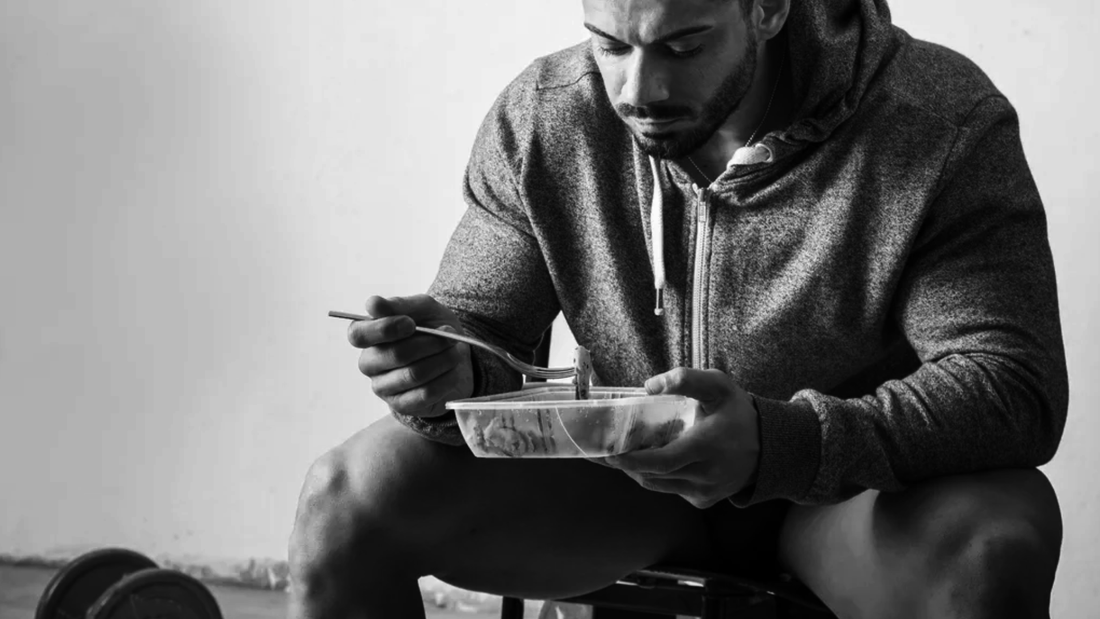
What to Eat Before and After the Gym for Maximum Results
If you’re serious about building muscle, losing fat, or simply training at your best, what you eat before and after your workouts matters. It’s not complicated, but it does require some structure.
When you fuel your body properly, you’ll lift heavier, recover faster, and see better results over time. When you don’t, you’ll struggle with low energy, slow recovery, and poor performance.
Let’s break it down into two simple questions:
What should you eat before you train?
What should you eat afterward?
What to Eat Before the Gym
The goal of a pre-workout meal is simple: fuel your performance without feeling heavy, bloated, or sluggish in the gym. You want energy, not fullness.
Here’s what matters:
- Carbohydrates give you fast energy and help you perform at your best.
- Protein supports muscle retention and reduces muscle breakdown during training.
- Fats should be kept moderate to low - they slow digestion and can make you feel sluggish if eaten in large amounts right before lifting.
Ideal timing:
Eat your pre-workout meal 1.5 to 2.5 hours before training. This gives your body enough time to digest and absorb nutrients without leaving you too full to move.
Pre-workout meal examples:
- Chicken breast, white rice, and a little olive oil
- Oats with whey protein and a banana
- Low-fat Greek yogurt with berries and granola
- Turkey sandwich on white bread with fruit on the side
If you’re training early and can’t get in a full meal, something small 30–45 minutes before lifting can still help:
- A banana with a scoop of protein
- A rice cake with honey and a protein shake
The key is simple, digestible carbs + fast protein - enough to support your effort without slowing you down.
What to Eat After the Gym
Post-workout nutrition is about recovery. You’ve broken down muscle tissue and depleted glycogen stores. Now your body needs the right nutrients to rebuild and grow.
The priorities after training:
- Protein to kickstart muscle repair
- Carbs to replenish energy stores
- Fluids to rehydrate
- Micronutrients to support recovery and inflammation control
Ideal timing:
Aim to eat within 60–90 minutes after training. The “anabolic window” isn’t as narrow as people once believed, but waiting too long can still delay recovery - especially if you trained hard or fasted before.
Post-workout meal examples:
- Lean beef, potatoes, and a green vegetable
- Grilled chicken, rice, and avocado
- Eggs, toast, and fruit
- Whey protein shake with oats and honey
- Salmon, white rice, and spinach
If you can’t eat a full meal right away, have a protein shake and fruit to hold you over until your next proper meal.
What If You Train Fasted?
Some people train first thing in the morning without eating. This can work if your workout is short and light - but for intense strength training, you’re better off with at least a small meal or shake before lifting.
If you must train fasted, make sure your post-workout meal is fast and complete - high in protein and carbs, and eaten as soon as possible.
Hydration Still Matters
Don’t overlook water. Dehydration reduces strength, endurance, and focus. Make sure you’re hydrated before you start your session, sip water during, and drink more after - especially if you’re sweating heavily.
Electrolytes (like sodium and potassium) can help too, especially in long or high-volume sessions.
Final Word
You don’t need to obsess over timing or macros, but you do need structure.
- Before training: give your body fuel - simple carbs and fast protein.
- After training: help it recover - full meals with carbs, protein, and hydration.
- Don’t skip meals or leave your results to chance.
Consistent, solid pre- and post-workout nutrition won’t just improve your performance - it’ll speed up your results and help you feel better both inside and outside the gym.
